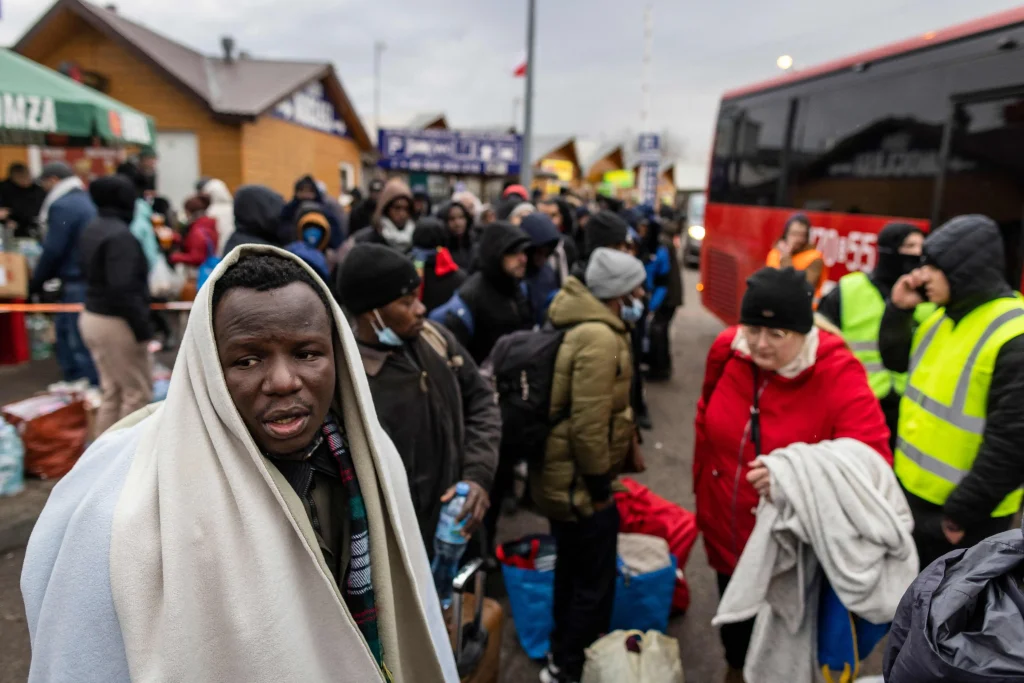Foreign Students Claim Discrimination While Fleeing Ukraine
As the war in Ukraine forces hundreds of thousands to flee, a troubling pattern of alleged discrimination is emerging. Many non-European foreign students — particularly from Africa, Asia, and the Middle East — report being turned back or delayed at Ukraine’s borders.
Jean-Jacques Kabeya, a 30-year-old pharmacy student from the Democratic Republic of Congo, described his harrowing experience. After escaping the bombardment in Kharkiv, he reached the Shegyni border crossing to Poland, only to be denied passage. Kabeya claimed border guards told him to stay and fight, allegedly singling him out for being Black.
After 36 hours stranded, he found himself back at Lviv train station, trying to find another route out. “It’s a catastrophe,” Kabeya said, as other compatriots from DR Congo offered him shelter.
African Union Expresses Concern Over ‘Shockingly Racist’ Incidents
Ukraine has long been a study destination for thousands of foreign students. However, since Russia’s invasion, reports of discrimination have multiplied. The African Union issued a statement expressing concern over what it described as “shockingly racist” treatment of African nationals trying to cross into neighbouring countries.
Nigeria and South Africa have also called for fair and humane treatment for their citizens. While some students have successfully crossed, many remain stranded in freezing temperatures, with little information about when they can move.
Separate Queues for Ukrainians and Foreigners
At the Shegyni border, witnesses described two distinct queues: one for Ukrainians — mostly women and children — and another for foreigners from countries including Pakistan, India, Algeria, Ghana, DR Congo, and Cameroon. Ukrainians reportedly crossed faster, while foreigners endured long waits in sub-zero temperatures, sometimes for several nights.
Mesum Ahmed, a 23-year-old Pakistani computer science student, said, “We’ve been sleeping here on the pavement. They treat us like we don’t matter.” Other students echoed similar sentiments, with some saying they felt targeted for their skin colour.
From Tolerance to Hostility
Several students from Cameroon claimed that before the war, they had not experienced racism in Ukraine. However, they noticed a sudden shift in attitudes since the invasion began.
Bryan Famini, a 22-year-old economics student, recalled being kept away from train seating areas, while fellow student Ghislain Weledji said Ukrainians mocked them as they walked. “I’ve been disappointed by this country. I won’t be coming back,” Weledji lamented.
Official Denials and Mixed Realities
Ukraine’s border service has denied any discriminatory practices, insisting that no one has been prevented from leaving. Polish officials have reiterated that all refugees, regardless of nationality, are welcome.
Still, on the ground in Lviv, many foreign students remain stuck. Amanjyot, a 23-year-old medical student, recounted being blocked from boarding a train as Ukrainians were given priority. Despite the hardships, she expressed gratitude for the humanitarian aid provided by the Ukrainian Red Cross and other charities, noting that volunteers treated everyone equally.






